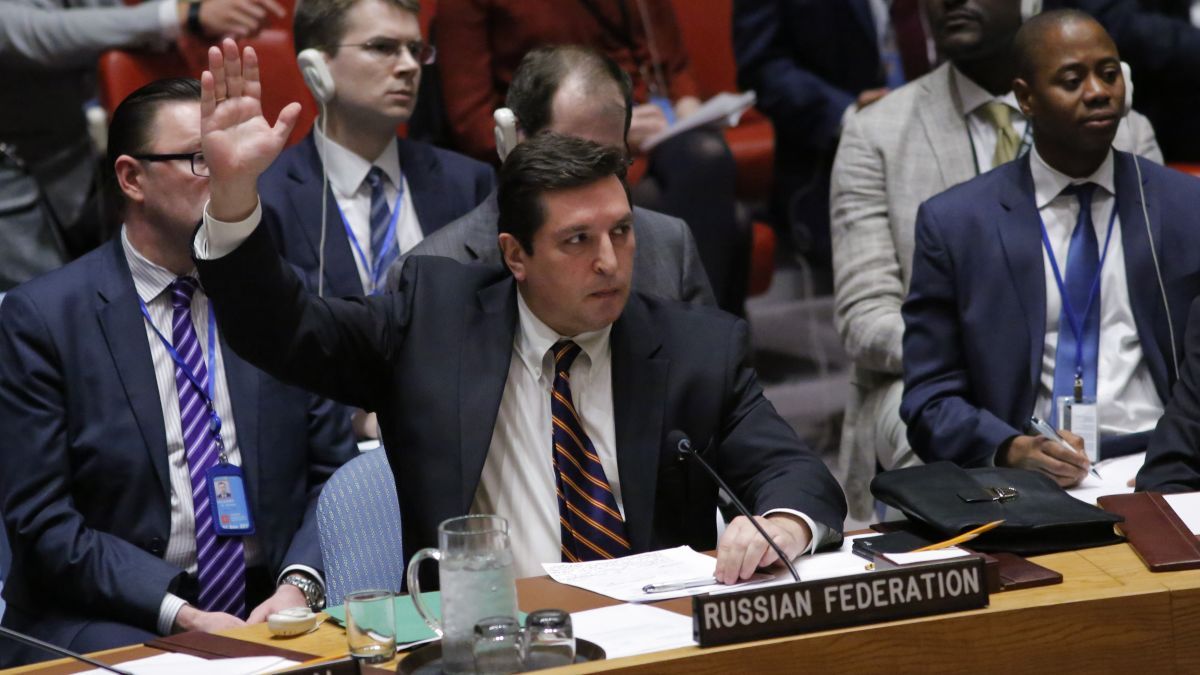UN passes resolution limiting Syrian aid after Russia veto threat

A few minutes every morning is all you need.
Stay up to date on the world's Headlines and Human Stories. It's fun, it's factual, it's fluff-free.
After Russia threatened to use its United Nations Security Council (UNSC) veto, the United Nations (UN) passed a resolution on January 10 that reduces the amount of humanitarian and medical aid given to over 1 million people in northeastern Syria.
Although the UN managed to pass the resolution before the midnight deadline, some UNSC members expressed disappointment with the “watered-down” measure that certain observers fear will cause further ‘humanitarian disaster.’
Veto power
Of the six bodies that make up the UN, the Security Council – which is responsible for safeguarding international peace and security – is the organization’s most powerful. It is the only organ of the UN that can introduce sanctions or authorize military interventions. On the UNSC there are five permanent members – China, France, Russia, the United Kingdom and the United States – plus ten temporary members.
Each member has one vote. For the UN to pass a resolution, nine of the 15 council members must vote for it, but the five permanent council members each have the power to veto a resolution. If they use their veto power, the UN cannot adopt a measure – even if the motion has enough votes.
Why the Security Council voted on the resolution
In 2014, the UN had passed Resolution 2449. This authorized cross-border humanitarian access to civilians in remote areas of Syria through neighboring countries Jordan, Turkey and Iraq. The resolution also permitted aid workers to enter Syria without the permission of the Syrian government.
UNSC members recently faced a deadline to pass the resolution because UN authorization to provide aid in Syria was about to expire. The UN failed to renew the resolution in December 2019, because of Russian and Chinese vetoes.
According to Russia, the situation in Syria had changed since 2014, leading to questions regarding the legitimacy of Resolution 2449. Russia argued that the Syrian government was now capable of providing humanitarian aid to civilians within its borders. They also claimed that the resolution undermined the country’s sovereignty and benefited terrorists in opposition areas. Following its initial veto, Russia submitted a second draft resolution which the UNSC rejected due to its inflexibility.
By vetoing the renewal of the UN resolution in December, Amnesty International claimed that “Russia and China have callously chosen to deny lifesaving humanitarian assistance and essential services to millions of Syrian civilians, and driven a nail in the coffin of the Council’s relevance at an unbearable human cost.”
Passing of the resolution
However, on the same day that its mandate expired, the UNSC passed the resolution, albeit with some ‘significant changes.’ The January 10 measure cuts the number of border crossings that humanitarian aid can pass through into Syria from four to two.
The Security Council accepted a Russian demand that access to the mainly rebel-held northwest of Syria should be from Turkey. The resolution also means that the UN can only provide aid for six months, rather than a year-long mandate for cross-border deliveries.
Some council nations, including Germany and Kuwait, had wanted to add a fifth crossing point and extend border access for a year. In a compromise with Russia’s demands and to prevent border closures, they agreed to only include access to two points for six months in the resolution. When it came to voting, 11 countries of the 15-member council voted ‘yes.’ Russia, China, the United States and the United Kingdom all abstained.
The resolution also calls on UN humanitarian agencies “to improve monitoring of the delivery and distribution of United Nations relief consignments and their delivery inside Syria.”
UN members react
Although the resolution was passed, reports suggest the outcome of the vote satisfied few council members. Every nation was “equally unhappy” with proceedings, according to Indonesia’s deputy UN ambassador Muhsin Syihab. In the immediate aftermath, US Ambassador Kelly Craft accused Russia of “triumphantly” supporting Syrian President Bashar al-Assad’s government “to starve its opposition.” She also warned: “Syrians will suffer needlessly … [and] Syrians will die as a result of this resolution.”
Russia has long maintained that cross-border aid is a temporary response to the Syrian conflict. According to Russia’s UN Ambassador Vassily Nebenzia, only two border crossings into Syria are needed. He claimed that the Jordan crossing point hadn’t been used “for a lengthy period of time” and the volume through the Iraqi crossing “is insignificant … and could be done from Syria.”
Before the vote, Nebenzia told reporters: “All these cries about imminent catastrophe, disaster, which the northeast faces, if we close one cross-border point, is totally irrelevant because humanitarian assistance to that region is coming from within Syria.”
According to the United Nations Office for the Coordination of Humanitarian Affairs (OCHA), the border crossings support 4 million Syrians – 2.7 million in the northwest and 1.3 million in the northeast.
The UN humanitarian chief Mark Lowcock stressed the importance of the border crossings in September 2019, telling the Security Council: “There is no alternative to the cross-border operation. There is no Plan B.”
Have a tip or story? Get in touch with our reporters at tips@themilsource.com




Comments ()